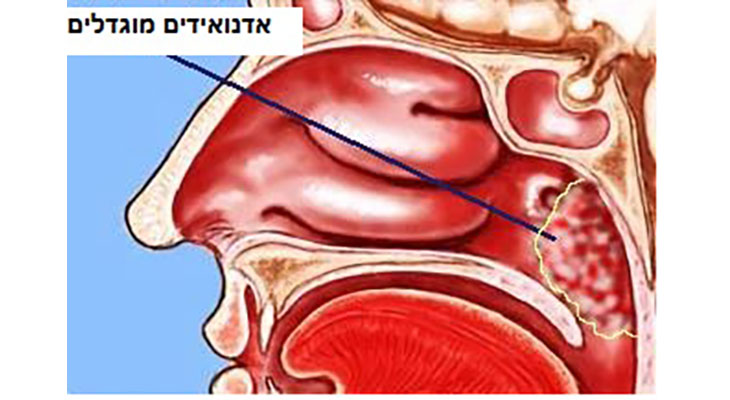
Adenoidectomy
Adenoidectomy is a surgical procedure performed to remove the adenoids. It is performed under general anaesthesia and takes approximately 15 minutes. The mouth is kept open by using an instrument called a gag. It can be performed using a curette to sharply “scrape out” the adenoids or using a cautery technique with “electrical” diathermy excision of the adenoids while suctioning under direct vision.
Indications for Adenoidectomy
1) Significant symptomatic adenoid hypertrophy “enlargement”- this could lead to:
a: Severe nasal blockage, mouth breathing, nasal speech and snoring.
b: Combined with large tonsils can cause severe obstruction to airflow (obstructive sleep apnoea)
2) Glue ear / recurrent ear infections- adenoidal infection and inflammation can cause inflammation within the Eustachian tube (the tube connecting the middle ear to the back of the nose, ventilating the middle ear). This can cause a build up of fluid within middle ear, and even recurrent bouts of ear infections. In this circumstance adenoidectomy may be performed together with insertion of ventilating tubes..
Complications of Adenoidectomy
Bleeding or hemorrhage- slim risk less than 1%.
Infection- slim risk less than 1%.
Lip/ tooth damage- As part of the operation an instrument is used to keep the mouth open (gag). There is a small risk for this to cause damage to the lips/ tooth or even cause dislocation of TMJ (tempromandibular joint), the joints responsible for opening and closing your mouth.
Pain- A mild sore throat may be present for 48 hours.
Expectations and advice following surgery
You may develop neck ache or earache about 5 to 7 days post operation. This usually responds well to Ibuprofen
You/Your child requires 1 week off Work/ School. This is to reduce the risk of contracting a cold, which might infect the adenoid bed before it has healed
You / your child should rest for the first 2 days at home
Avoid vigorous physical activities for the first 5 days
Avoid very hot baths and showers. Take these quite cool. It may lead to adenoidal hemorrhage
A small nosebleed is common within the first few days post-surgery. Do not be alarmed but contact Dr.Ovnat Tamir for advice. However, if bleeding is profuse attend your local hospital’s Emergency department
A low-grade fever (below 38°C) is common. You / your child should respond well to increase fluid intake and regular use of acamol and Ibuprofen. If fever is not settling or deteriorating contact Dr. Ovnat Tamir
Avoid smoking and dusty and dry atmospheres
Avoid crowded places and people with coughs and cold to avoid infection

 FishArt
FishArt